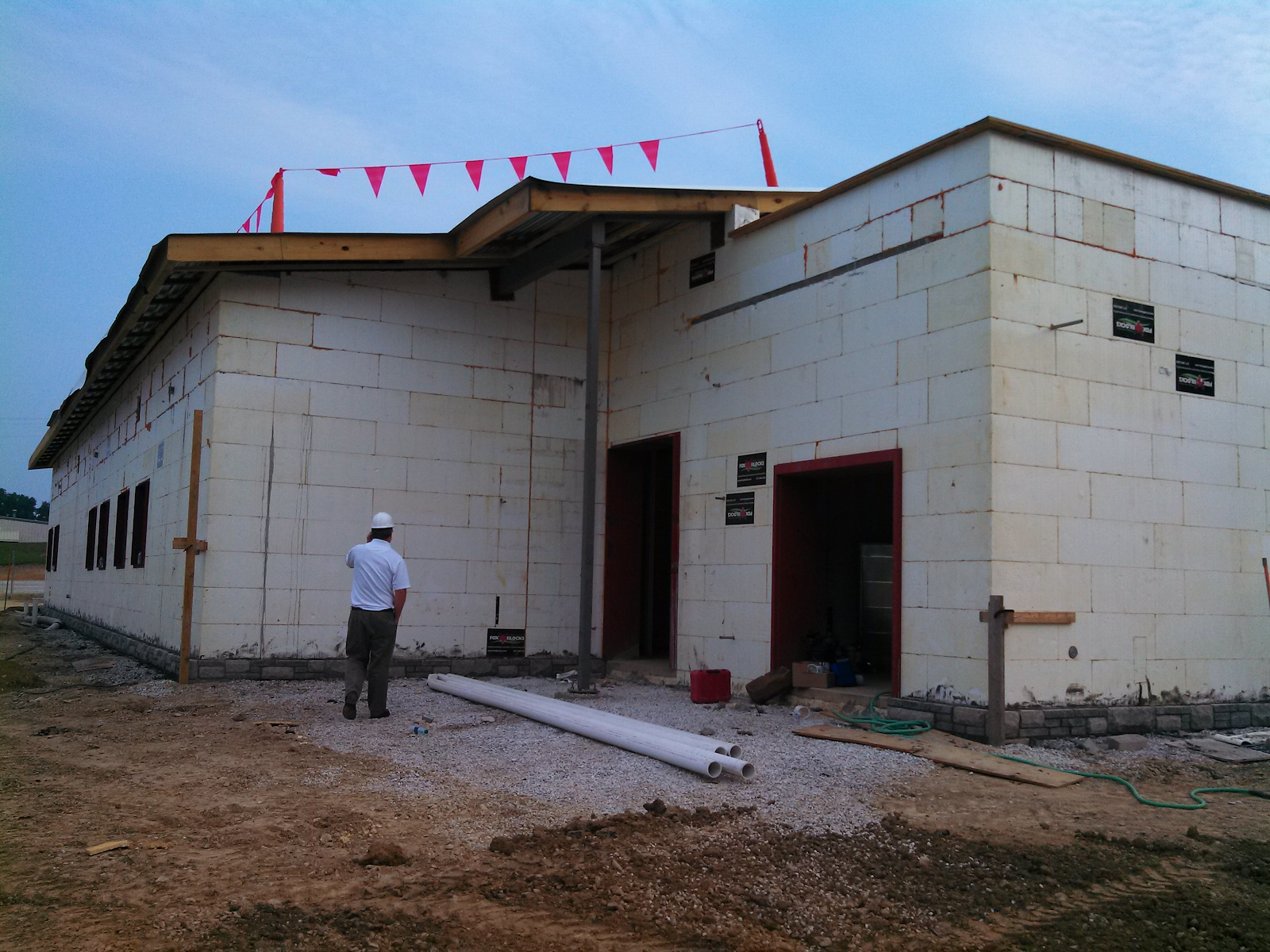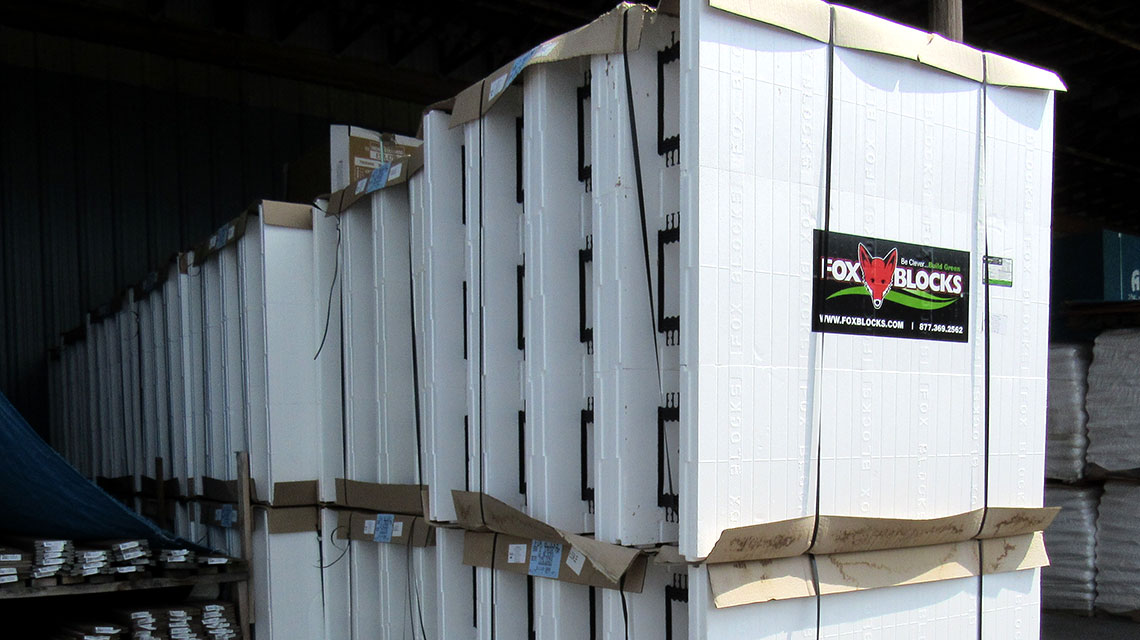
Acoustic Performance of Concrete Construction with Insulated Concrete Forms (ICFs)

In today's fast-paced and noisy world, the demand for quiet and comfortable living and working spaces is ever-growing. Acoustic performance has become a vital factor in modern construction, and affects various building types such as multi-family residences, medical facilities, schools, and universities.
Among the materials available for construction, concrete has increasingly become the preferred choice for walls and floor-ceiling assemblies due to its excellent acoustic performance. Insulated concrete forms (ICFs), in particular, provide significant benefits, and Fox Blocks stands out as a leading provider of ICFs.
The Acoustics of Concrete

Concrete has inherent properties, such as high mass and density, that make it an ideal material for achieving high acoustic performance in buildings. When evaluating acoustic performance, transmission and absorption are the two key variables to be aware of.
Transmission is a measure of how well a material allows sound to pass through white absorption (or attenuation) is a measure of how much the material reduces the volume of sound that is present.
Some materials, like concrete, are excellent at preventing transmission but are poor absorbers of sound. This is why some concrete structures may do a great job of blocking external noises but can tend to echo.
When designing a building, the acoustic transmission and absorption properties of the materials must be in careful balance. These properties are crucial in reducing both airborne and structure-borne noise transmission, and they create a more peaceful and quiet indoor environment. The concrete makes it difficult for sound to pass through the walls and the insulation helps to dampen any sound waves that are present.
ICFs and Enhanced Acoustic Performance

Traditional concrete structures have excellent acoustic transmission properties, but the lack of sound absorption can lead to annoying echos. ICFs provide several advantages by adding in both an inner and outer layer of insulation.
The continuous layers of insulation, on both sides of the wall, not only boost the wall’s energy efficiency, but also the acoustic performance by further preventing acoustic transmission and by providing sound absorption. ICF construction results in structures that are isolated from external noises and quiet on the inside.
The construction industry has taken notice of ICF’s enhanced acoustic performance and the benefits that it provides to occupants and homeowners. ICF industry associations have reported that only about one-quarter to one-eighth as much sound penetrates through an ICF wall compared to a wood-frame wall. ICF exterior walls are a superb product for preventing noise pollution from disrupting the interior of a structure and should be considered any time noise reduction is an issue.
Building code requirements for sound transmission between multi-family living units, adjacent buildings and public spaces has a minimum range of STC 50. ICFs meet this requirement for exterior walls and are also used as demising walls or party-walls between units. In addition, the acoustic properties of ICFs are recognized for school, theater and worship building construction.
ICF Benefits Beyond Just Noise Reduction
ICF blocks also provide a host of other benefits beyond just enhanced acoustic performance. ICF construction is also known for its incredible energy efficiency and strength.
ICF walls have increased thermal mass due to the concrete in the wall coupled with inner and outer continuous layers of insulation. The thick concrete and double layers of insulation result in an R-value greater than R-22 for Fox Blocks.
The concrete in the wall heats and cools slowly, so even if the temperature changes rapidly outside, the concrete works to dampen the temperature swing and keeps the interior conditions more stable.
ICF construction also naturally prevents thermal bridging. Thermal bridging is a phenomenon that occurs when a conductor of heat, like a nail or screw, pierces the plane of insulation. The conductor then provides a path or bridge for heat to travel into or out of the building easily through the insulation.
One small thermal bridge is not typically a concern, but many thermal bridges in a wall can add up to have a dramatic effect. Because ICF walls are poured in place and do not require fasteners, they naturally prevent the formation of thermal bridges.
The integrated insulation in Fox Blocks ICFs not only contributes to energy efficiency but also aids in sound absorption. The insulation helps to dampen the noise, in order to create a more comfortable space for occupants while also being a more energy efficient building.
The unique design of ICFs also creates airtight wall assemblies, which reduces air leaks, and further enhances acoustic performance. Air leaks are a common pathway for noise transmission, and by effectively sealing these leaks, ICFs contribute to a quieter indoor environment.
Flanking noise, or sound that travels around or through the structural elements of a building, can significantly impact acoustic performance. Fox Blocks ICFs, with their continuous insulation and solid concrete core, help to reduce flanking noise, to further improve the sound insulation. That same solid concrete core also provides the structure with incredible strength and reliability. The steel-reinforced concrete nature of ICF is so strong that ICF construction is commonly used to build storm shelters.
Fox Blocks: The ICF Block of Choice

Investing in superior acoustic performance is an investment in the well-being, comfort, and satisfaction of the people who will live in and use the building.
Choose Fox Blocks ICFs for unparalleled sound insulation, energy efficiency, and durability.
Contact Fox Blocks today to learn more about their insulated concrete form solutions and take the first step towards building a quieter, more comfortable space for you and your occupants!